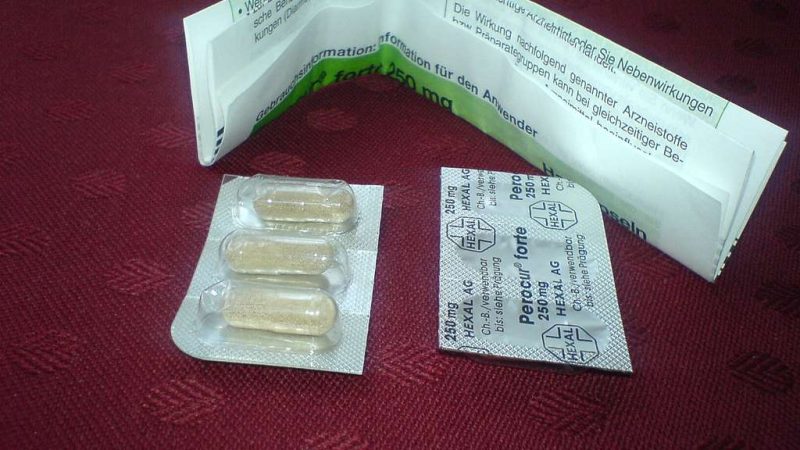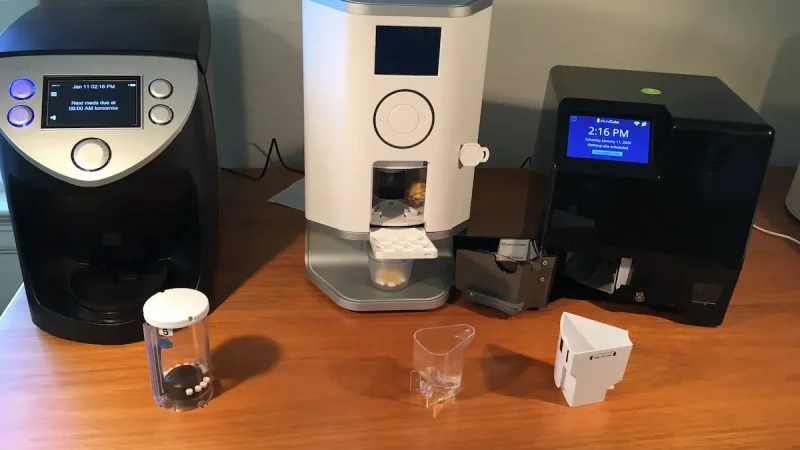Certified Medication Aide Practice Test: A Comprehensive Guide for Aspiring CMAs

Becoming a Certified Medication Aide (CMA) is a rewarding career path for individuals passionate about assisting with the medical care of patients in various healthcare settings. A CMA is entrusted with the critical responsibility of administering medications, which requires a thorough understanding of medical protocols, patient care, and drug administration.
To pursue this certification, candidates must pass a certification exam that assesses their knowledge and skills in medication administration. One of the best ways to prepare for this exam is by taking practice tests. These tests simulate the actual certification exam and provide invaluable insight into the types of questions you might encounter. This article aims to explore the importance of certified medication aide practice tests, the skills and knowledge required for the exam, and strategies for effective preparation.
What is a Certified Medication Aide (CMA)?
A Certified Medication Aide is a healthcare professional who assists in the administration of medications under the supervision of a licensed nurse or healthcare provider. CMAs typically work in long-term care facilities, nursing homes, assisted living communities, hospitals, and other healthcare settings.
While the scope of a CMA’s duties may vary depending on the healthcare setting, the main responsibility is administering medications to patients, ensuring the proper dosage, and observing the patient for any adverse reactions. CMAs also maintain records of medication administration and help with patient education on proper medication usage.
To become a CMA, an individual must complete a state-approved training program, pass a certification exam, and maintain their certification through continuing education. A CMA’s role is crucial in ensuring that patients receive the correct medications in a safe and timely manner.
The Importance of Certified Medication Aide Practice Tests
The Certified Medication Aide exam is a comprehensive assessment that evaluates a candidate’s understanding of medication administration, patient care, and clinical skills. Given the high level of responsibility involved in this role, the certification process is designed to ensure that candidates have the necessary knowledge and skills to provide safe, effective care.
One of the most effective ways to prepare for the exam is by taking practice tests. Here’s why:
- Familiarization with Exam Format Practice tests give candidates an opportunity to become familiar with the format and structure of the actual exam. This includes the types of questions (e.g., multiple choice, true/false, or scenario-based questions) and the topics covered in the exam. By taking practice tests, candidates can ease their anxiety and be better prepared for what to expect on exam day.
- Identification of Knowledge Gaps By completing practice tests, candidates can identify areas where their knowledge may be lacking. This allows them to focus their study efforts on specific topics or concepts that need improvement. A practice test can highlight weak points in areas like drug calculations, patient safety protocols, or medication classifications, enabling candidates to strengthen their understanding of these concepts.
- Time Management The CMA certification exam has a time limit, and practice tests can help candidates improve their time management skills. By practicing under timed conditions, candidates can get a feel for how long they have to answer each question and develop strategies to complete the exam within the allotted time.
- Increased Confidence Taking multiple practice tests boosts a candidate’s confidence. Knowing that they have completed mock exams and performed well can reduce test anxiety and increase their belief in their ability to succeed. Confidence plays a significant role in exam performance and helps candidates remain calm during the actual exam.
- Reinforcement of Key Concepts Repetition is one of the most effective ways to reinforce learning. By regularly completing practice tests, candidates reinforce the key concepts and important information that will be tested. This process helps improve retention and makes it easier to recall critical information during the actual exam.
Key Topics Covered in Certified Medication Aide Practice Tests
The Certified Medication Aide exam is comprehensive and covers a wide range of topics related to medication administration and patient care. The following are key areas that candidates should focus on during their preparation:
1. Medication Administration
- Medication Routes and Methods: Understanding the different routes for medication administration, including oral, intravenous (IV), subcutaneous (SC), intramuscular (IM), and topical.
- Medication Dosages and Calculations: Ability to calculate correct dosages based on the doctor’s orders and patient needs, including conversions between metric and household measurements.
- Administration Techniques: Proper techniques for administering medications, including verifying patient identity, preparing medications, and documenting administration.
2. Medication Safety
- Five Rights of Medication Administration: The Five Rights are: the right patient, the right medication, the right dose, the right route, and the right time.
- Preventing Medication Errors: Understanding the common causes of medication errors and how to prevent them.
- Side Effects and Adverse Reactions: Recognizing and responding to potential side effects, allergic reactions, or adverse reactions to medications.
3. Pharmacology and Drug Knowledge
- Drug Classifications: Knowledge of various drug classes (e.g., antibiotics, analgesics, antidiabetics, etc.), their uses, and their effects on the body.
- Common Medications: Familiarity with the names, uses, dosages, and side effects of commonly prescribed medications.
- Drug Interactions: Understanding how different drugs may interact with each other and how this can affect patient safety.
4. Patient Care and Communication
- Patient Assessment: Understanding how to assess a patient’s condition before and after medication administration, including vital signs and other relevant observations.
- Patient Education: Educating patients about their medications, including proper usage, potential side effects, and the importance of adherence to the prescribed regimen.
- Communication Skills: Communicating effectively with patients, family members, and healthcare providers to ensure the proper administration of medications.
5. Legal and Ethical Considerations
- Medication Laws and Regulations: Understanding the legal responsibilities and ethical guidelines associated with medication administration.
- Confidentiality and Patient Rights: Respecting patient privacy and confidentiality in accordance with HIPAA regulations and ensuring that patients are fully informed about their treatment options.
6. Recordkeeping and Documentation
- Medication Administration Records (MAR): Accurately documenting the administration of medications and any observations related to the medication process.
- Reporting and Documentation of Errors: Properly documenting and reporting any medication errors or adverse reactions to supervisors or healthcare providers.
Effective Study Strategies for the CMA Exam
While taking practice tests is a crucial part of exam preparation, candidates should also incorporate other effective study strategies to ensure success:
- Study from Official Materials Use study guides, textbooks, and other official materials recommended by the certifying body. These materials are tailored to the exam’s content and will help you focus on the most relevant information.
- Break Study Sessions into Manageable Segments Instead of cramming all the information at once, break your study sessions into smaller, manageable segments. Study for 30–60 minutes at a time and take short breaks to improve focus and retention.
- Join Study Groups Studying with peers can help reinforce your knowledge and provide different perspectives on difficult topics. Study groups also allow for group discussions, which can be a helpful way to clarify confusing concepts.
- Use Flashcards Flashcards are an excellent way to memorize important drug names, classifications, and side effects. Create flashcards for key medications, medical terminology, and the Five Rights of Medication Administration.
- Practice Time Management Since the exam has a time limit, practice answering questions under timed conditions to improve your ability to complete the exam within the allotted time. This will help you stay calm and focused during the actual exam.
- Review and Repeat Practice Tests After completing a practice test, review your answers, especially the incorrect ones. Understand why you got a question wrong and use that information to guide your further study. Repeating practice tests will help solidify your understanding and improve your performance.
Where to Find Certified Medication Aide Practice Tests
Several resources offer practice tests and study materials for the CMA certification exam. These include:
- State Health Department Websites: Many state health departments provide free study materials and practice tests for aspiring CMAs.
- CMA Training Programs: Institutions offering CMA training often provide practice exams as part of their curriculum.
- Online Practice Test Providers: Websites like Med-Prep, Test-Guide, and Quizlet offer free or paid practice tests specifically designed for the CMA exam.
- Books and Study Guides: Many publishers offer comprehensive CMA study guides that include practice tests and review questions.
Conclusion
Becoming a Certified Medication Aide is an essential step in the healthcare profession, and passing the certification exam is a key milestone in your career journey. By utilizing practice tests, you can significantly improve your chances of passing the exam and beginning your rewarding career as a CMA. Practice tests help you become familiar with the exam format, identify areas for improvement, and increase your confidence. Along with study materials, time management, and focused preparation, practice tests are an indispensable tool for CMA success. With dedication and the right resources, you’ll be well on your way to becoming a Certified Medication Aide and making a positive impact on patient care.





